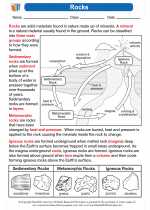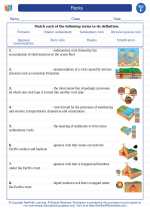Ancient Civilizations
Ancient civilizations refer to the early societies and cultures that existed before the Middle Ages. These civilizations made significant contributions to human history in areas such as art, architecture, technology, and governance. Studying ancient civilizations provides insight into the development of human societies and the origins of modern civilization.
Key Ancient Civilizations
Several ancient civilizations played crucial roles in shaping the course of human history. Here are some of the key ancient civilizations to study:
- Egyptian Civilization: Known for its pyramids, pharaohs, and hieroglyphics, ancient Egypt was a powerful civilization located along the Nile River. It made advancements in architecture, medicine, and mathematics.
- Mesopotamian Civilization: Mesopotamia, located in the area of modern-day Iraq, was home to the Sumerians, Akkadians, Babylonians, and Assyrians. It was known for its city-states, invention of writing, and the Code of Hammurabi.
- Indus Valley Civilization: Flourishing in present-day Pakistan and northwest India, the Indus Valley Civilization had well-planned cities, advanced drainage systems, and a system of writing that is yet to be deciphered.
- Chinese Civilization: Ancient China developed along the Yellow River and the Yangtze River. It is known for inventions such as paper, gunpowder, and the compass, as well as its philosophies of Confucianism and Daoism.
- Greek Civilization: The ancient Greeks made significant contributions to philosophy, art, and democratic governance. They also excelled in mathematics, science, and architecture.
- Roman Civilization: The Romans built a vast empire that encompassed much of Europe, the Middle East, and North Africa. They are known for their engineering feats, legal system, and governance structure.
Study Guide
When studying ancient civilizations, it's important to focus on the following key aspects:
- Geography: Understand the geographical features and resources that influenced the development of each civilization.
- Social Structure: Explore the social classes, roles of men and women, and systems of governance within each civilization.
- Religion and Beliefs: Investigate the religious practices, myths, and belief systems that were central to each civilization's culture.
- Technological Advancements: Examine the innovations and technological achievements that emerged within each civilization, such as writing systems, architectural feats, and tools.
- Trade and Economy: Analyze the trade routes, economic systems, and commodities that fueled the prosperity of ancient civilizations.
- Legacy: Consider the lasting impact of each civilization on modern societies, including their contributions to art, literature, science, and governance.
By studying ancient civilizations, we gain a deeper understanding of the diverse cultures and achievements that have shaped human history and continue to influence our world today.
[Ancient Civilizations] Related Worksheets and Study Guides:
.◂Science Worksheets and Study Guides Sixth Grade. Rocks

 Activity Lesson
Activity Lesson
 Worksheet/Answer key
Worksheet/Answer key
 Worksheet/Answer key
Worksheet/Answer key
 Worksheet/Answer key
Worksheet/Answer key
 Worksheet/Answer key
Worksheet/Answer key
 Vocabulary/Answer key
Vocabulary/Answer key
 Vocabulary/Answer key
Vocabulary/Answer key
 Vocabulary/Answer key
Vocabulary/Answer key
